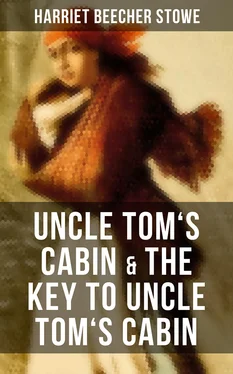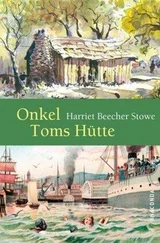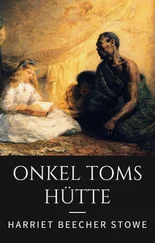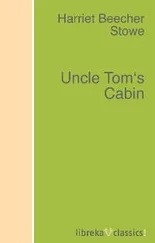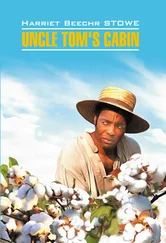Harriet Beecher Stowe
Uncle Tom's Cabin & The Key to Uncle Tom's Cabin
The Anti-Slavery Classic
Published by

Books
- Advanced Digital Solutions & High-Quality eBook Formatting -
musaicumbooks@okpublishing.info
2017 OK Publishing
ISBN 978-80-272-3111-9
Uncle Tom’s Cabin Uncle Tom’s Cabin By Harriet Beecher Stowe Table of Contents
VOLUME I VOLUME I
CHAPTER I In Which the Reader Is Introduced to a Man of Humanity CHAPTER II The Mother CHAPTER III The Husband and Father CHAPTER IV An Evening in Uncle Tom's Cabin CHAPTER V Showing the Feelings of Living Property on Changing Owners CHAPTER VI Discovery CHAPTER VII The Mother's Struggle CHAPTER VIII Eliza's Escape CHAPTER IX In Which It Appears That a Senator Is But a Man CHAPTER X The Property Is Carried Off CHAPTER XI In Which Property Gets into an Improper State of Mind CHAPTER XII Select Incident of Lawful Trade CHAPTER XIII The Quaker Settlement CHAPTER XIV Evangeline CHAPTER XV Of Tom's New Master, and Various Other Matters CHAPTER XVI Tom's Mistress and Her Opinions CHAPTER XVII The Freeman's Defence CHAPTER XVIII Miss Ophelia's Experiences and Opinions
VOLUME II CHAPTER XIX Miss Ophelia's Experiences and Opinions Continued CHAPTER XX Topsy CHAPTER XXI Kentuck CHAPTER XXII "The Grass Withereth—the Flower Fadeth" CHAPTER XXIII Henrique CHAPTER XXIV Foreshadowings CHAPTER XXV The Little Evangelist CHAPTER XXVI Death CHAPTER XXVII "This Is the Last of Earth"* CHAPTER XXVIII Reunion CHAPTER XXIX The Unprotected CHAPTER XXX The Slave Warehouse CHAPTER XXXI The Middle Passage CHAPTER XXXII Dark Places CHAPTER XXXIII Cassy CHAPTER XXXIV The Quadroon's Story CHAPTER XXXV The Tokens CHAPTER XXXVI Emmeline and Cassy CHAPTER XXXVII Liberty CHAPTER XXXVIII The Victory CHAPTER XXXIX The Stratagem CHAPTER XL The Martyr CHAPTER XLI The Young Master CHAPTER XLII An Authentic Ghost Story CHAPTER XLIII Results CHAPTER XLIV The Liberator CHAPTER XLV Concluding Remarks
THE KEY TO UNCLE TOM'S CABIN
PART I.CHAPTER I. CHAPTER II. MR. HALEY. CHAPTER III. MR. AND MRS. SHELBY. CHAPTER IV. GEORGE HARRIS. CHAPTER V. ELIZA. CHAPTER VI. UNCLE TOM. CHAPTER VII. MISS OPHELIA. CHAPTER VIII. MARIE ST. CLARE. CHAPTER IX. ST. CLARE. CHAPTER X. LEGREE. CHAPTER XI. SELECT INCIDENTS OF LAWFUL TRADE. CHAPTER XII. TOPSY. CHAPTER XIII. THE QUAKERS. CHAPTER XIV. THE SPIRIT OF ST. CLARE.
PART IICHAPTER I. CHAPTER II. CHAPTER III. CHAPTER IV. PROTECTIVE STATUTES. CHAPTER V. PROTECTIVE ACTS OF SOUTH CAROLINA AND LOUISIANA—THE IRON COLLAR OF LOUISIANA AND NORTH CAROLINA. CHAPTER VI. PROTECTIVE ACTS WITH REGARD TO FOOD AND RAIMENT, LABOUR, ETC. CHAPTER VII. THE EXECUTION OF JUSTICE. CHAPTER VIII. THE GOOD OLD TIMES. CHAPTER IX. MODERATE CORRECTION AND ACCIDENTAL DEATH— STATE v. CASTLEMAN. CHAPTER X. PRINCIPLES ESTABLISHED—STATE v. LEGREE; A CASE NOT IN THE BOOKS. CHAPTER XI. THE TRIUMPH OF JUSTICE OVER LAW. CHAPTER XII. A COMPARISON OF THE ROMAN LAW OF SLAVERY WITH THE AMERICAN. CHAPTER XIII. THE MEN BETTER THAN THEIR LAWS. CHAPTER XIV. THE HEBREW SLAVE-LAW COMPARED WITH THE AMERICAN SLAVE-LAW. CHAPTER XV. SLAVERY IS DESPOTISM. CHAPTER I. DOES PUBLIC OPINON PROTECT THE SLAVE? CHAPTER II. PUBLIC OPINION FORMED BY EDUCATION. CHAPTER III. SEPARATION OF FAMILIES. CHAPTER IV. THE SLAVE-TRADE. CHAPTER V. SELECT INCIDENTS OF LAWFUL TRADE, OR FACTS STRANGER THAN FICTION. CHAPTER VI. CHAPTER VII. CHAPTER VIII. KIDNAPPING. CHAPTER IX. SLAVES AS THEY ARE, ON TESTIMONY OF OWNERS. CHAPTER X. "POOR WHITE TRASH."
PART IV. CHAPTER I. THE INFLUENCE OF THE AMERICAN CHURCH ON SLAVERY. CHAPTER II. CHAPTER III. MARTYRDOM. CHAPTER IV. SERVITUDE IN THE PRIMITIVE CHURCH COMPARED WITH AMERICAN SLAVERY. CHAPTER V. CHAPTER VI. CHAPTER VII. CHAPTER VIII. CHAPTER IX. IS THE SYSTEM OF RELIGION WHICH IS TAUGHT THE SLAVE THE GOSPEL? CHAPTER X. WHAT IS TO BE DONE?
By Harriet Beecher Stowe
Table of Contents
CHAPTER I
In Which the Reader Is Introduced to a Man of Humanity
Table of Contents
Late in the afternoon of a chilly day in February, two gentlemen were sitting alone over their wine, in a well-furnished dining parlor, in the town of P——, in Kentucky. There were no servants present, and the gentlemen, with chairs closely approaching, seemed to be discussing some subject with great earnestness.
For convenience sake, we have said, hitherto, two gentlemen. One of the parties, however, when critically examined, did not seem, strictly speaking, to come under the species. He was a short, thick-set man, with coarse, commonplace features, and that swaggering air of pretension which marks a low man who is trying to elbow his way upward in the world. He was much over-dressed, in a gaudy vest of many colors, a blue neckerchief, bedropped gayly with yellow spots, and arranged with a flaunting tie, quite in keeping with the general air of the man. His hands, large and coarse, were plentifully bedecked with rings; and he wore a heavy gold watch-chain, with a bundle of seals of portentous size, and a great variety of colors, attached to it,—which, in the ardor of conversation, he was in the habit of flourishing and jingling with evident satisfaction. His conversation was in free and easy defiance of Murray's Grammar,* and was garnished at convenient intervals with various profane expressions, which not even the desire to be graphic in our account shall induce us to transcribe.
* English Grammar (1795), by Lindley Murray (1745-1826), the
most authoritative American grammarian of his day.
His companion, Mr. Shelby, had the appearance of a gentleman; and the arrangements of the house, and the general air of the housekeeping, indicated easy, and even opulent circumstances. As we before stated, the two were in the midst of an earnest conversation.
"That is the way I should arrange the matter," said Mr. Shelby.
"I can't make trade that way—I positively can't, Mr. Shelby," said the other, holding up a glass of wine between his eye and the light.
"Why, the fact is, Haley, Tom is an uncommon fellow; he is certainly worth that sum anywhere,—steady, honest, capable, manages my whole farm like a clock."
"You mean honest, as niggers go," said Haley, helping himself to a glass of brandy.
"No; I mean, really, Tom is a good, steady, sensible, pious fellow. He got religion at a camp-meeting, four years ago; and I believe he really did get it. I've trusted him, since then, with everything I have,—money, house, horses,—and let him come and go round the country; and I always found him true and square in everything."
"Some folks don't believe there is pious niggers Shelby," said Haley, with a candid flourish of his hand, "but I do. I had a fellow, now, in this yer last lot I took to Orleans—'t was as good as a meetin, now, really, to hear that critter pray; and he was quite gentle and quiet like. He fetched me a good sum, too, for I bought him cheap of a man that was 'bliged to sell out; so I realized six hundred on him. Yes, I consider religion a valeyable thing in a nigger, when it's the genuine article, and no mistake."
"Well, Tom's got the real article, if ever a fellow had," rejoined the other. "Why, last fall, I let him go to Cincinnati alone, to do business for me, and bring home five hundred dollars. 'Tom,' says I to him, 'I trust you, because I think you're a Christian—I know you wouldn't cheat.' Tom comes back, sure enough; I knew he would. Some low fellows, they say, said to him—Tom, why don't you make tracks for Canada?' 'Ah, master trusted me, and I couldn't,'—they told me about it. I am sorry to part with Tom, I must say. You ought to let him cover the whole balance of the debt; and you would, Haley, if you had any conscience."
Читать дальше
